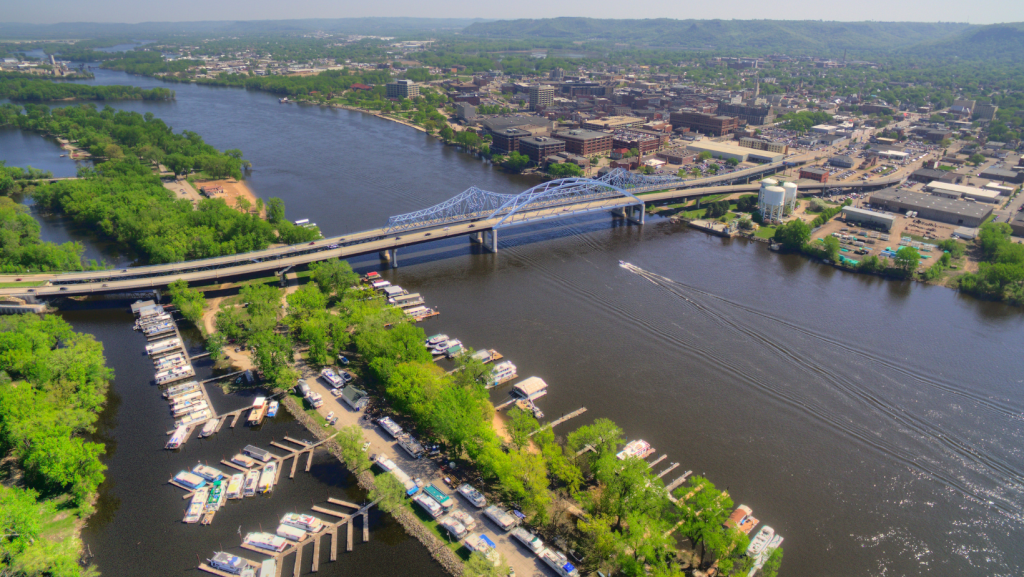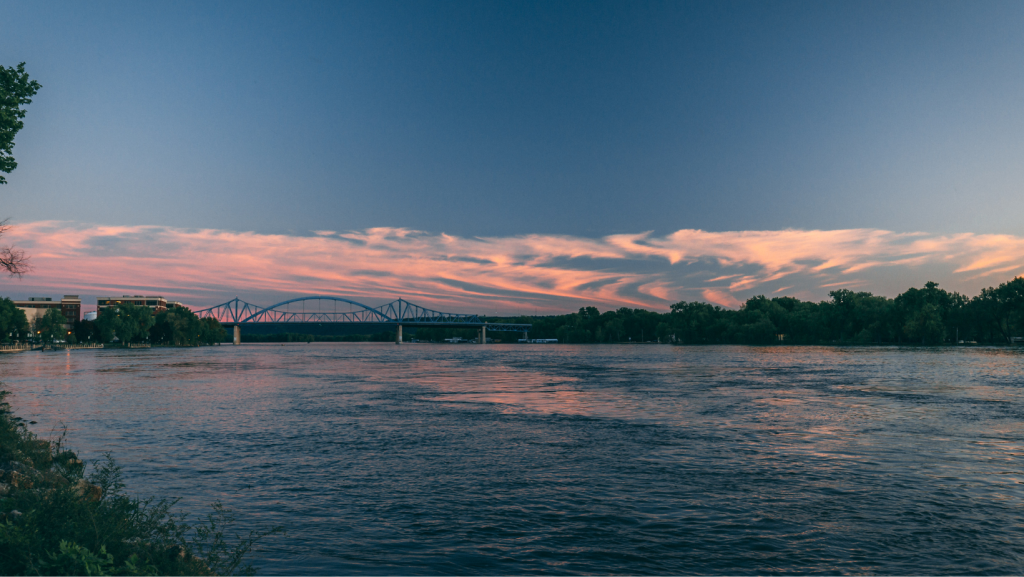The Mississippi River, often referred to as the lifeline of the United States, holds profound ecological, cultural, and economic significance. In addition to the Mississippi’s $500 billion-a-year natural resource and recreation-based economy, the River provides drinking water to 20 million Americans and transports nearly 500 million tons of industrial and agricultural cargo each year. However, decades of human activity have taken their toll on this majestic waterway, leading to habitat degradation, water pollution, and diminished resilience in the face of our changing climate. In response to these challenges, the Mississippi River Restoration and Resilience Initiative (MRRRI) has emerged as a beacon of hope, aiming to restore the river’s health and promote its long-term resilience.
Recently, Senator Tammy Baldwin (D-WI) and Rep. Betty McCollum (D-MN) introduced the Mississippi River Restoration and Resilience Initiative Act (MRRRI) to provide long-term, sustainable funding to restore the ecological integrity of the Mississippi River basin while enhancing its resilience to environmental and human-induced stressors. The initiative focuses on several key areas: habitat restoration, water quality improvement, floodplain management, and community engagement. By addressing these interconnected issues holistically, the MRRRI seeks to create a more sustainable and resilient river system that can thrive in the face of future challenges.

The MRRRI recognizes the importance of managing the watershed and floodplains in a way that enhances both ecological and community resilience through two central strategies: habitat restoration and nutrient pollution reduction. By restoring natural features such as wetlands, floodplains, and riparian zones along the Mississippi and its tributaries, the initiative will enhance biodiversity, improve water quality, reduce channel sedimentation and provide essential habitat for wildlife. Restoring natural floodplain processes and increasing floodplain connectivity will reduce the risk of flooding, enhance groundwater recharge, and provide valuable habitat for wildlife. Restoring floodplains provides a buffer for communities against the extreme flooding we are experiencing from climate change.
Nutrient pollution and sedimentation are significant threats to water quality, leading to algal blooms, hypoxia, and degraded aquatic ecosystems. Through targeted agricultural best management practices, urban stormwater management, and wastewater treatment upgrades, the initiative aims to reduce nutrient runoff and sediment transport into the river, thereby improving water clarity, oxygen levels, and overall ecosystem health.
The Mississippi River Restoration and Resilience Initiative represents a visionary, voluntary and collaborative effort to address the complex environmental challenges facing one of America’s most iconic waterways. Through strategic investments in habitat restoration, water quality improvement, and floodplain management, the MRRRI is laying the groundwork for a more sustainable and resilient future for the Mississippi River and the communities that depend on it.
For more information about MRRRI and how you can show your support, go to mississippiriver.org/mrrri

